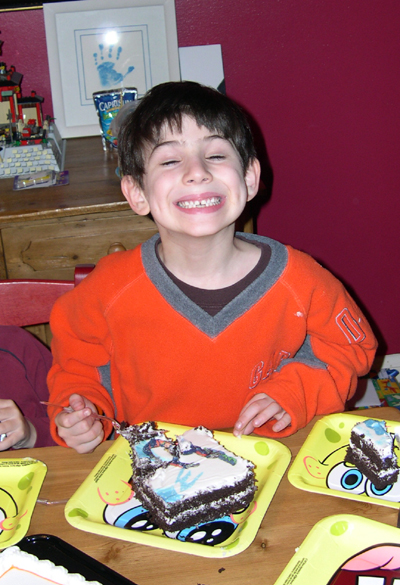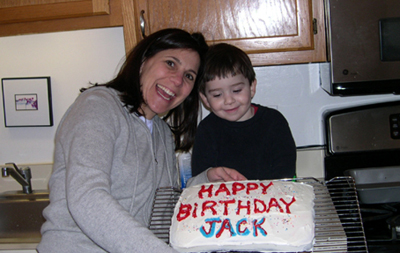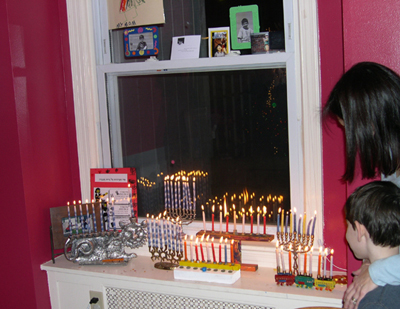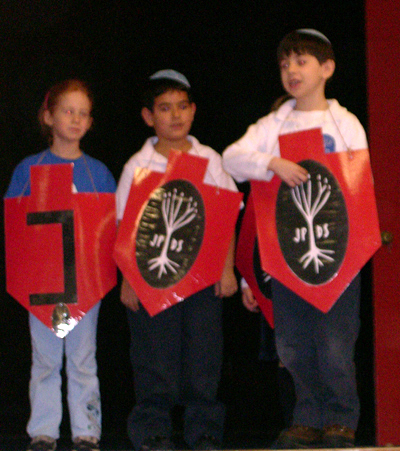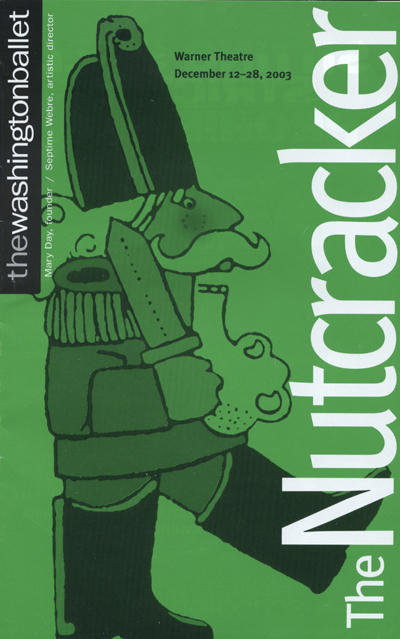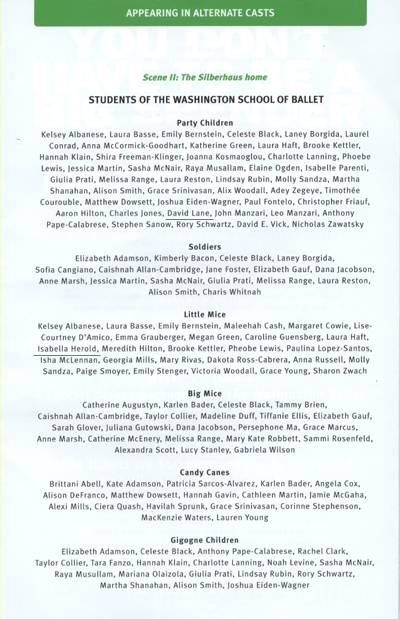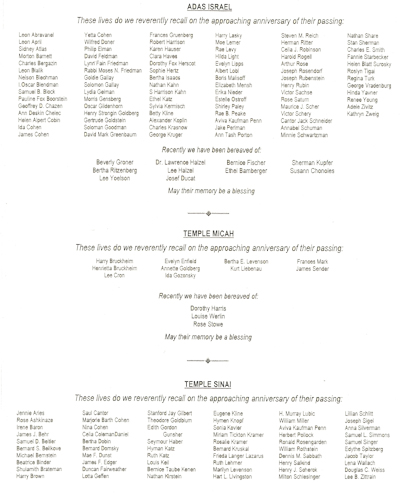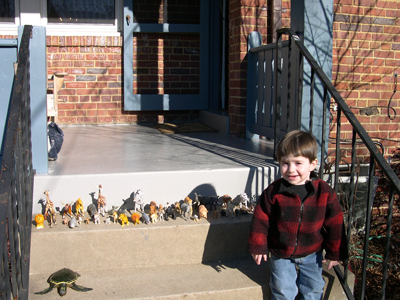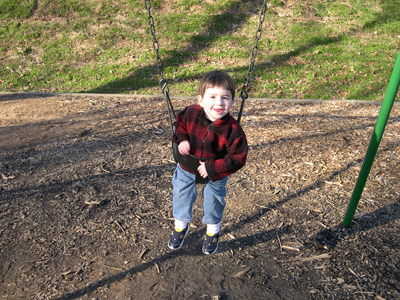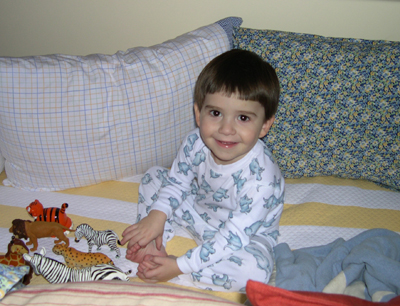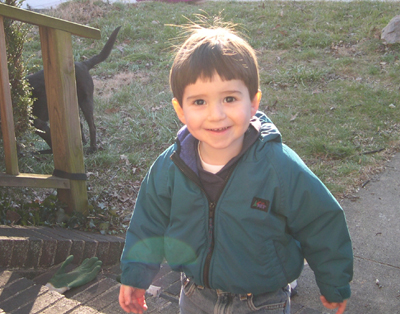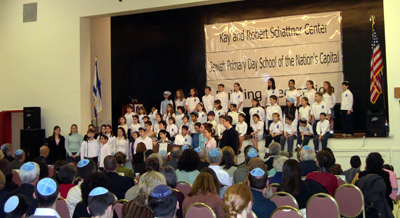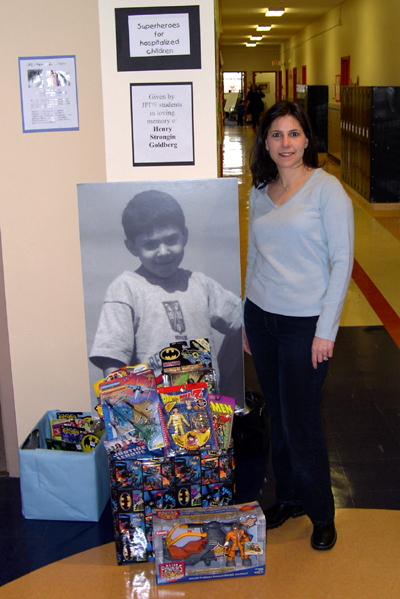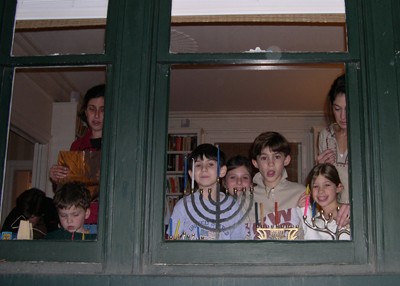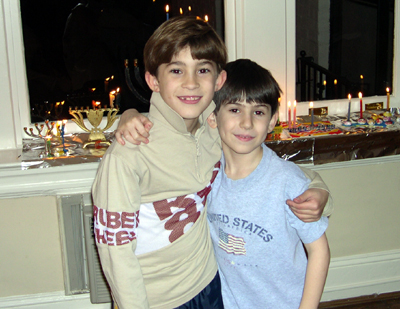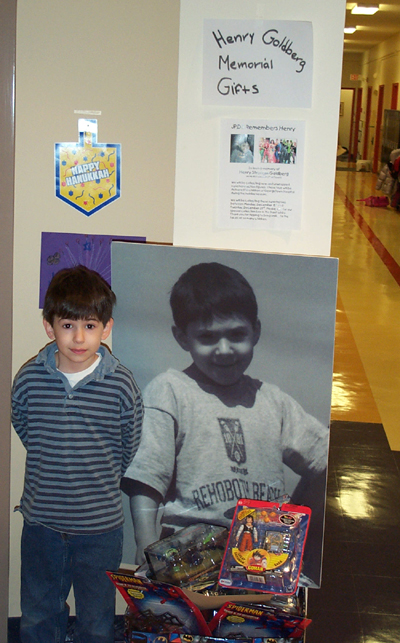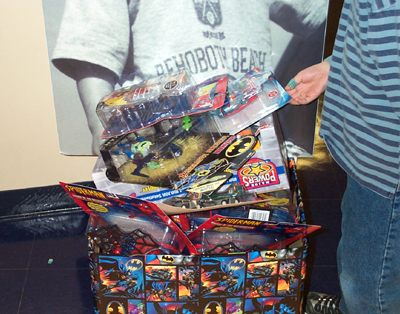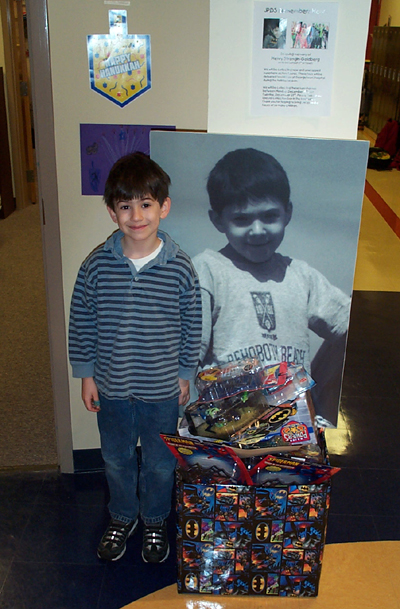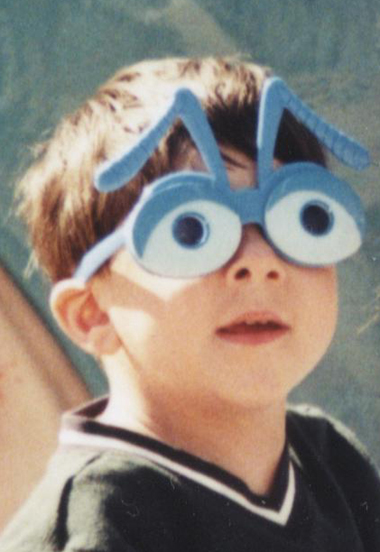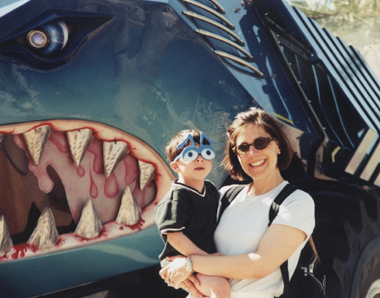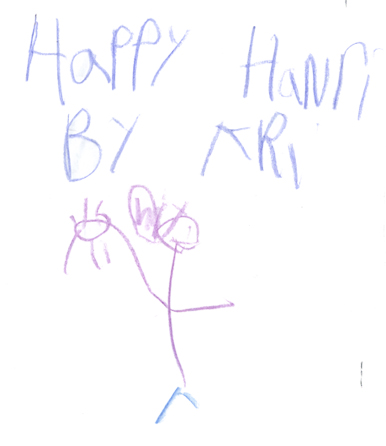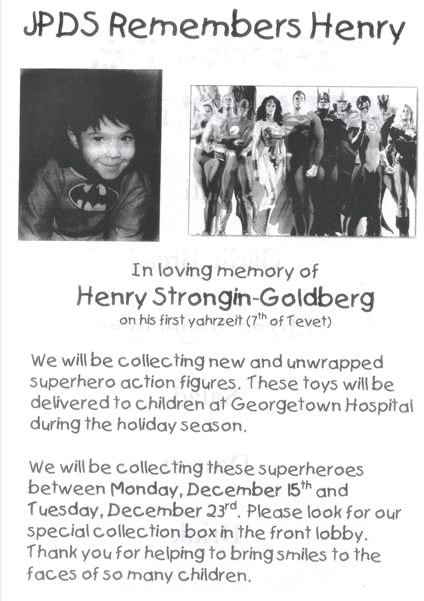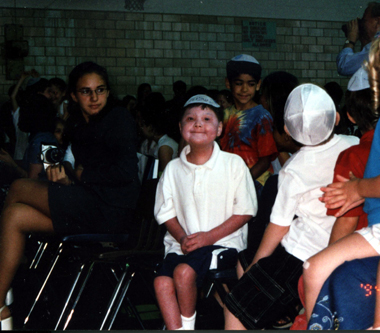
When you were young I read a book by a woman, Lorrie Moore, called Birds of America. There was a story in the book about a mom with a sick baby. The mom talked about how much she wanted to be physically close to the baby, to kiss it. I really liked that story. I was just reading a magazine and there a story by Lorrie Moore in it. This passage made me think of you.
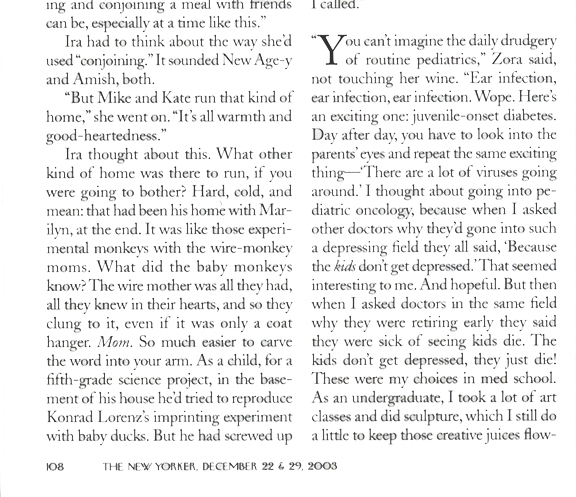
You didn't get depressed, really. Sometimes we thought you were being sad but it always turned out to be some kind of physical pain that was not letting you be yourself.
Here is something else that I just read. It made me cry, but in a good way. Kids are tough and smart. The Molly in this story reminded me of you. Grown ups can learn a lot by listening. I am glad we always talked about the tough things.
 As Medical Choices For Sick Kids Grow, Hardest Is: No More
As Medical Choices For Sick Kids Grow, Hardest Is: No More
At 5, Molly Was Diagnosed With Serious Brain Tumor;
New Trial or Time at Home?
By AMY DOCKSER MARCUS
Staff Reporter of THE WALL STREET JOURNAL
ARLINGTON, Va. -- In an age of spectacular scientific progress, parents with gravely ill children have never had more information or better medical options.
There are new drugs on the market and more effective methods for delivering them. Clinical trials, testing the latest experimental drugs, offer hope where little or none existed. The Internet puts all this at a family's fingertips, along with stories about people defying long odds to survive.
Each anecdote and medical innovation provides cause for optimism. But when the possibilities seem limitless, one choice becomes more difficult to contemplate: whether to do nothing at all.
That problem didn't occur immediately to Darcy Reid Trick and Roger Foley back in March 1999, when their 5-year-old daughter, Molly, awoke one morning unable to move the right side of her face. After her pediatrician recommended a brain scan, her parents received devastating news: Molly had an inoperable tumor.
Standing in the neurologist's office in front of the white-on-black scan, the doctor pointed out how the tumor wove its way like a web through Molly's brain stem, an area the size of an adult's pinky finger that controls breathing and swallowing.
The couple believed that if they looked enough they would find a course of treatment that could give Molly a chance. "I just need to figure out the right questions to ask," Ms. Trick, Molly's mother, recalls thinking that day.
Their search for that treatment took them to the cutting edge of medical technology, where brain-stem gliomas such as the kind Molly had are a major focus of research. They used the Internet to find doctors performing the latest clinical trials. They learned about experimental drugs that target particular receptors in a tumor's cellular pathway and others that try to stop the growth of blood vessels that supply tumors.
Though they found many promising leads, they also learned that survival expectancy was essentially the same as 20 years ago for children with brain stem gliomas. Most die within 18 months of diagnosis.
At first, Molly's parents were willing to try anything. Doctors told them that radiation treatments could halt the progress of the tumor, at least temporarily. Within a week Molly began an intense course of radiation therapy. Her parents spent every day seeing doctors or taking Molly for radiation treatments. In their spare moments, mostly late at night, they began doing research on alternate approaches that might improve their daughter's chances for survival.
They began by researching treatments that might bolster her immune system. They received herbal teas from a doctor who specialized in Chinese medicine. Molly also underwent acupuncture and took vitamins.
Later, they learned of a biochemist who had developed a vegetable soup that supposedly slowed tumor growth. They used the Internet to track down Sun Farm Corp., maker of the broth. It cost $495 to get a case shipped from the company's base in Connecticut to Molly's home outside Washington.
Molly hated the soup, a thick green paste of lentils, leeks, Senegal root, licorice, angelica root and more. Her mother mixed it with chicken broth, put it in a juicer with carrots and apples, and even ate a bowl of it along with Molly every day to encourage her to have more.
At the same time, Ms. Trick and Mr. Foley searched the Internet for mainstream medical advances, boning up on the latest drug and chemotherapy options. They put their names on every childhood cancer and brain-tumor Web site they could find and joined related chat groups, seeking information about technologies or procedures they might have overlooked. They spoke by telephone with staff members at the Pediatric Brain Tumor Foundation of the United States, and obtained a copy of a resource guide from the Children's Brain Tumor Foundation.
Molly's doctor, Roger Packer of Children's National Medical Center in Washington, told them one in 10 children with Molly's kind of cancer survived five years or more. So her parents started hunting for survivors, hoping to learn how they beat the odds.
After about a month, they had yet to find a single child who had survived more than nine months.
Parents crave survival statistics and often base treatment decisions on them. But studies of adult cancer patients show that doctors frequently overstate the chances of survival when they talk to patients. Some pediatric oncologists say survival rates for a tumor such as Molly's are much worse than one in 10. Dr. Packer says he based his figure on personal experience with patients. He says he stands by the numbers.
"I wish I could understand what made those children different," says Dr. Packer, referring to the survivors.
Still, the couple wondered if Molly had any real chance to extend her life.
"What was really out there if we couldn't turn up a single survivor?" asks Mr. Foley, 52 years old, a free-lance photographer. His pictures of Molly and the couple's older daughter, Kate, now 18, adorn the living room wall of the family's home.
By the first week in May, Molly finished her radiation treatments and celebrated with a party at her godmother's house. A clown performed magic tricks and made balloon animals. Even as they watched Molly play Duck, Duck, Goose, her parents knew time was probably running out. The doctors had told them that the benefits of radiation are usually transient. The tumor could start growing again, perhaps as soon as six months later.
Ms. Trick and Mr. Foley wanted more information, which they hoped in turn would give them more options. They divided up the research work according to their personalities. Ms. Trick, 50, is the daughter of a diplomat father who moved around Europe. She was sent to an American boarding school in Italy for her education and, at age 19, moved to Washington, where she worked as a researcher and a journalist and earned her degree in literature at American University. She decided to focus her investigation on conventional therapies. Mr. Foley, who plays jazz trumpet and electric guitar, decided to study alternative medicine.
The couple agreed they would take certain risks if a treatment option seemed promising. They learned about a study being done at the Dana-Farber Cancer Institute using thalidomide during and after radiation treatments to prevent the growth of blood vessels that feed brain-stem tumors. On an Internet site dedicated to brain-stem glioma, some parents said the drug made their children severely lethargic. But unlike chemotherapy, it required no surgery. The medicine was in pill form.
When Molly's parents called the doctor leading the study in Boston, though, he said the trial wasn't yet enrolling patients. They talked to their own doctor about obtaining the drug outside of a clinical trial, but he said the results so far didn't indicate that it was worth trying.
Then they got what they hoped was a lucky break. Mr. Foley's brother-in-law had been speaking to someone at work who had advanced prostate cancer and attended a seminar where a researcher spoke excitedly about antisense drugs. Antisense drugs don't attack bacteria or viruses. Instead, they attempt to block the production of the faulty proteins that fuel the disease. The researcher at the seminar spoke about a small trial he had conducted on 10 adult patients with brain tumors. It was still early, he said, but they appeared to be responding to the drugs. Mr. Foley listened to an audiotape his relative's colleague had made of the lecture and then called the researcher at his office.
The scientist told him that doctors at the Children's Hospital of Philadelphia were hopeful about starting a small trial in which the drugs would be used on children with brain tumors. Ms. Trick and Mr. Foley waited for Molly to have her first brain scan after completing radiation and then booked train tickets to Philadelphia. They wanted the doctors there to meet Molly in person so they could determine whether she might be included in their clinical study.
Even if Molly was accepted into the trial, they knew it involved much greater risk than any option they had so far considered. Doctors would have to perform a dangerous surgery in the most delicate part of the brain to obtain tissue to make the drug. The couple wasn't sure doctors would agree to take the chance. But Ms. Trick and Mr. Foley were willing to try.
"We didn't want a science that had already failed," says Ms. Trick. "The idea behind this made sense."
But when they got to the hospital, the doctor who examined Molly said the trial might not take place until much later in the year, if at all. The doctor reviewed Molly's brain scan. When she finished, her comments gave Ms. Trick and Mr. Foley the impression that the doctor didn't think Molly would survive long enough to enroll.
On the train ride back to Washington, they kept Molly busy with card games, puzzles and word searches. But Ms. Trick says she and her husband also started thinking their research might not lead to a solution. They talked about whether their pursuit of more options might cost Molly what little time she had left to enjoy her life.
"We had done everything we could think of," says Mr. Foley. "Once you start looking, one thing always leads to another thing, and you just keep going down that path searching for the next thing to try."
Says Ms. Trick: "You keep going because you feel that if you're doing something -- anything -- your child won't die."
Now, for the first time, they thought about stopping.
One day in late July, Molly had difficulty breathing and was rushed to the hospital. She insisted on packing her own bag, a small red suitcase on wheels with a picture from the "101 Dalmatians" movie on the front. Molly filled the suitcase with dresses and lay down on her bed to rest. She refused to pack any socks, telling her mother she hated wearing them.
At the hospital, doctors explained that fluids were being trapped in the ventricles of Molly's brain above her tumor. They needed to perform surgery to put a shunt in her brain to divert the fluid and relieve the mounting pressure.
While Molly was in the hospital, Dr. Packer told Ms. Trick that the latest brain scan showed Molly's tumor was growing again. The radiation treatment had failed. It was time to think about enrolling Molly in a new trial using chemotherapy drugs to try to stop the tumor's growth, he said. He mentioned three open trials, including one with a drug called taxotere, which seemed the best for Molly's condition.
The couple wrestled with their choice. How much time did Molly have left? What were the chances of this or any drug working?
When they asked Molly's doctor how other children already enrolled in the taxotere study were faring, he said he couldn't tell them.
"We are not trying to hide this information, but we also don't want to overstep our ability to interpret it," says Dr. Packer, explaining why he and other doctors don't share statistics with parents while a trial is under way. The results have little meaning until the studies are complete, he said. "People would make choices based on information that might not be correct."
Molly's parents worked independently to see if they could figure out how children in the trial were doing. They searched the Internet. They contacted friends who knew doctors doing cancer research. Finally, in late July, they found one person with knowledge of the clinical trial who agreed to meet with Ms. Trick. After making Ms. Trick promise not to reveal where she got the information, the source said that eight children had already been enrolled in the trial, and that none of them were showing any response. Seven of the eight had died before they could take the second dose of the drug, administered 21 days after the first.
That night, says Ms. Trick, "We stopped researching." Instead, she and her husband talked.
Enrolling Molly in the trial would mean she would have to undergo another operation in order for surgeons to install a central line in a vein in her chest to make it easier to administer chemotherapy drugs and draw blood. She would need hours of chemotherapy infusions and could suffer side effects.
One of their oncologists had advised them to ask Molly what she thought.
Molly was sitting on her parents' bed reading a picture book when her parents sat down beside her. They told her there was another medicine available and that she would have to go to the hospital. Molly had already told her parents that she was convinced the doctors would have fixed her already if they knew how. Now, she answered without hesitation, according to her parents, who made notes on the conversation in a journal at the time.
"I don't want them to put the medicine in me," she said. "I don't want them to do one more thing to my body."
They met one more time with Dr. Packer before making their decision.
"A parent has to have hope," the doctor said, according to Ms. Trick's notes from the conversation.
But for Ms. Trick and Mr. Foley, hope was no longer enough. If the treatment seemed likely to add even three months to Molly's life, they might have tried it, they said. Instead, they decided to focus whatever time remained on Molly.
Over the next month, the family went for long walks in the park next to their home. Molly and her sister, Kate, baked a chocolate cake with Reese's Pieces on top. Friends of the couple invited Molly to a formal dinner party, where she ate salmon and played Uno and stayed up until two in the morning.
Mr. Foley took Molly on a canoe trip. They sang, "Row, Row, Row Your Boat" and screamed when a fish jumped in their canoe. They sat outside on the front steps of their home one night and by the light of the moon read "The Owl and the Pussycat," one of Molly's favorite books.
Molly practiced her spelling and subtraction problems so she would be ready for first grade. Even as it became more difficult to walk without swaying, she insisted on navigating the house alone, using the walls for support. In late August, her parents threw her an early birthday party. She wore her favorite sundress, yellow with bright flowers. The backyard filled with friends and family.
Four days later, on Aug. 25, 1999, Molly died. She was two weeks shy of her sixth birthday.
A few weeks ago, Ms. Trick went online. For the first time since Molly died, she decided to search for information about what is happening with the treatments they had considered. She suddenly found herself jumping from site to site, and remembered once again how hard it is to stop looking for one more thing to try.


